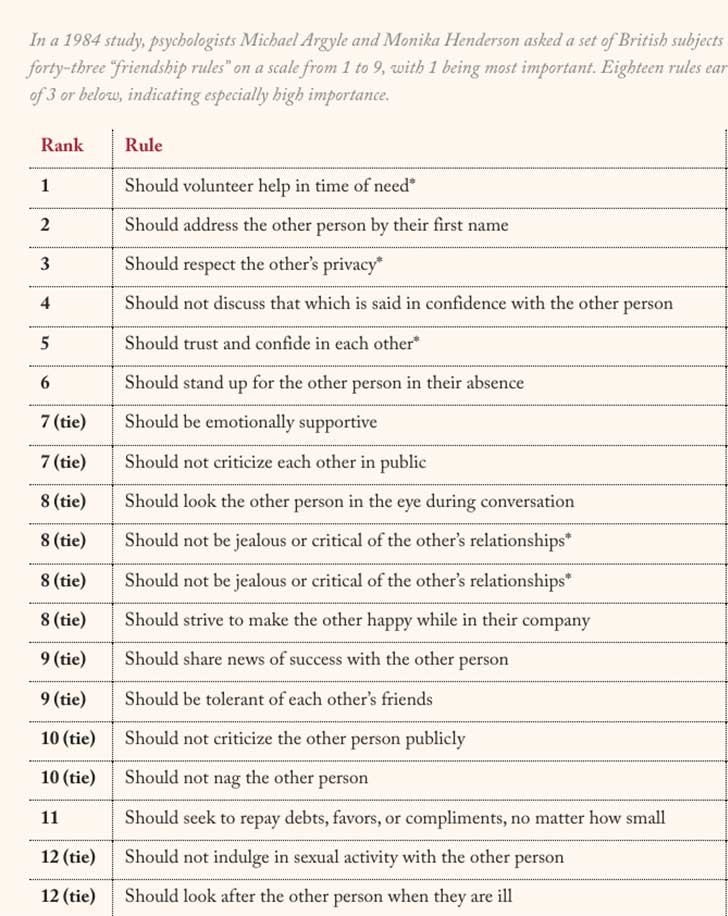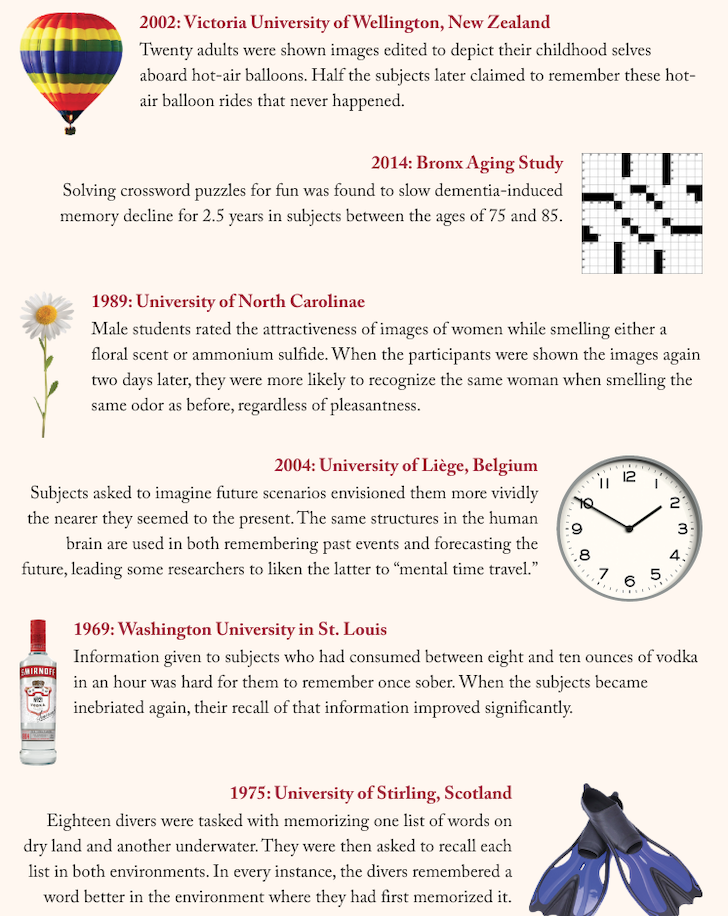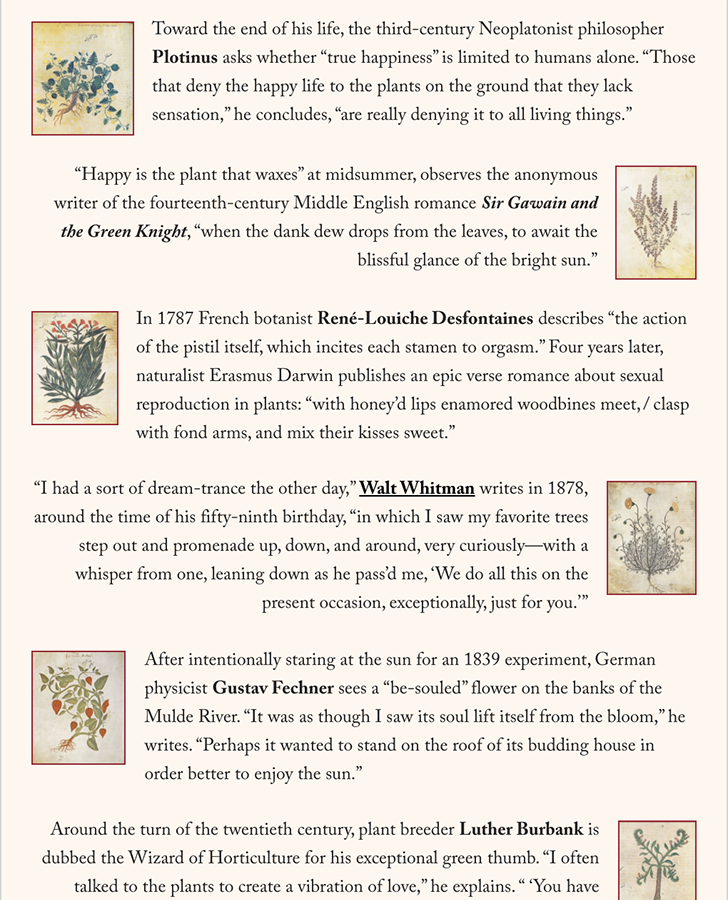Miscellany
In 1927 Russian psychologist Bluma Zeigarnik identified a phenomenon that came to be known as the Zeigarnik effect, which states that waiters are good at remembering particulars of a restaurant bill—until the bill is paid. “Unfinished tasks are remembered approximately twice as well as completed ones,” concluded Zeigarnik.
Miscellany
In 1956 psychologist George Miller published a paper that claimed the average number of objects a typical human can hold in short-term memory is seven (plus or minus two). “What about the magical number seven?” he wrote. “What about the seven wonders of the world, the seven seas, the seven deadly sins, the seven daughters of Atlas in the Pleiades, the seven ages of man, the seven levels of hell, the seven primary colors, the seven notes of the musical scale, and the seven days of the week?”
Miscellany
In 1995 cognitive psychologist Elizabeth Loftus conducted a study in which she presented to twenty-four people four stories about their childhoods. Three of the stories were true; one was false. Five of the twenty-four people falsely remembered the “lost in a mall” story. “People can be led to remember their past in different ways,” concluded Loftus, “and they even can be led to remember entire events that never actually happened to them.”
Pages




